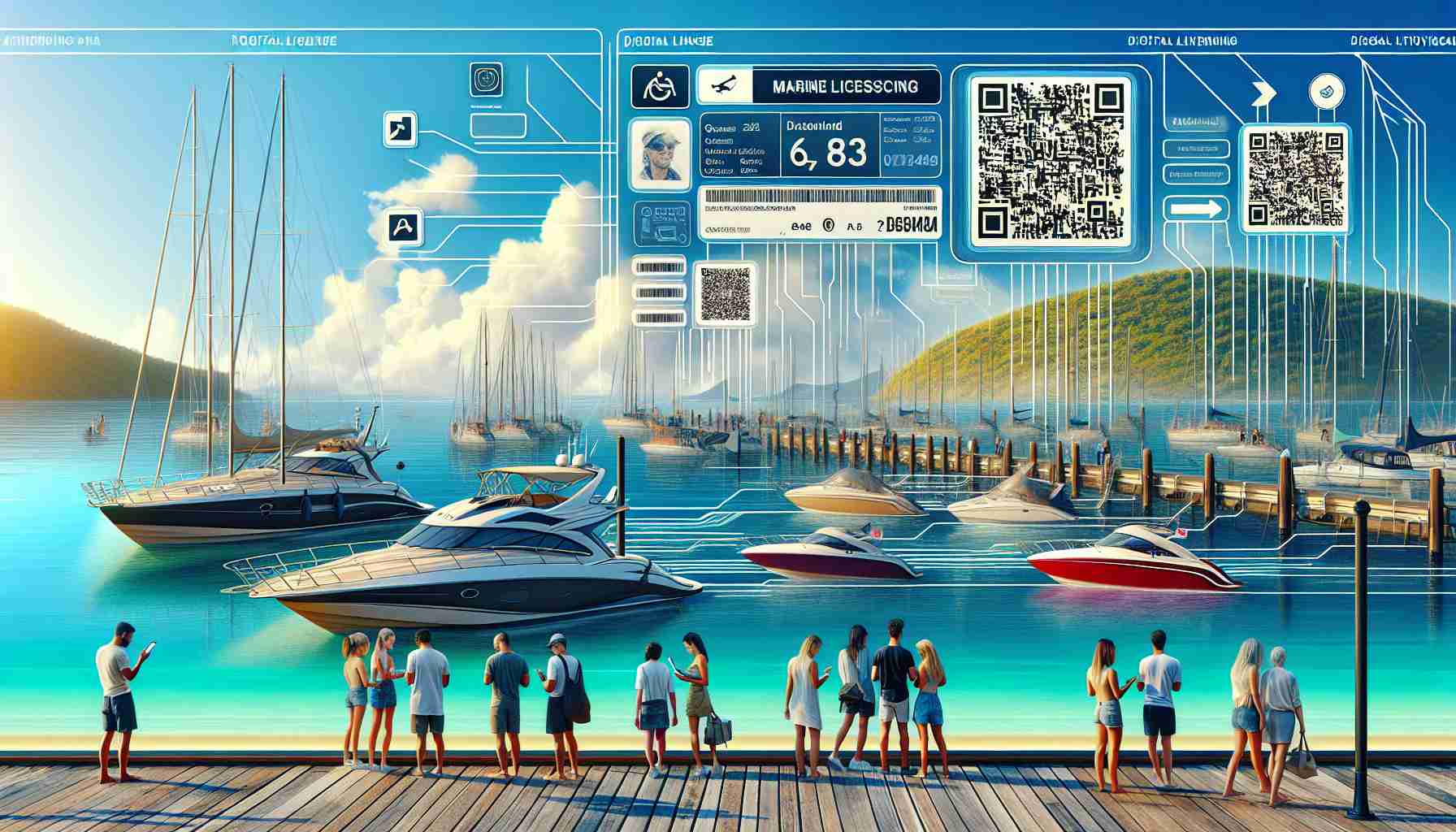Queensland introduces a novel way for boaters to carry their credentials, moving away from traditional physical licences. The state’s transportation department has full-throttled into the digital arena with a cutting-edge mobile application that stores marine certifications. This innovation follows a successful testing phase, and the app now stands ready for statewide adoption by water enthusiasts.
Collaborating with technological leaders, including Thales known for its cybersecurity mastery, Code Heros, a distinguished Australian app development company, and Aliva, a Queensland tech pioneer, the department has developed an app that exemplifies modernity and user privacy. Queenslanders are encouraged to transition from carrying tangible documents to a more convenient digital option on their smartphones, available for display on up to three separate devices.
Boasting a feature set that conforms to global standards, the app’s designers ensure that Queensland’s boat operators can proudly present their marine licences internationally as needed. This global recognition underscores the app’s broad utility and anticipates the demand for a seamless integration into the international boating community.
The app’s security infrastructure has been painstakingly designed to guard personal data, a principle that Transport and Main Roads Minister, Mark Bailey, emphasizes as a cornerstone of the project. Using the app necessitates creating a Queensland Digital Identity, a unique identifier intended to bolster the platform’s robust privacy measures.
Available for download on both Apple iOS and Google App stores, Queensland is steering its citizens towards a safer, more secure, and more modern digital experience on the water. As the digital tide turns, Queensland remains at the helm, ready to navigate the waters of technological progress.
Important Questions and Answers:
– What motivated the move to digital licensing in Queensland?
The move to digital licensing was motivated by a desire to modernize the boating experience, streamline the carrying of credentials, and enhance security for personal data. A growing international trend towards digital documentation also likely played a role.
– How does the digital marine licensing app improve user privacy?
The app ensures user privacy through a unique Queensland Digital Identity, which bolsters security measures and limits access to personal data.
– Are there any potential challenges or controversies associated with digital marine licensing?
Some potential challenges include ensuring all boaters have access to and can competently use a smartphone, handling situations where digital devices might run out of power or malfunction, and addressing privacy concerns related to data sharing and potential data breaches.
– What are the advantages of adopting a digital marine licensing app?
Advantages include increased convenience, as boaters no longer need to carry physical documents; improved privacy and security features; the ability to use the license internationally; and seamless integration with other digital services.
– What are the disadvantages?
Disadvantages could include the exclusion of individuals without access to a smartphone or those who are not tech-savvy. Additionally, reliance on digital devices that may run out of battery or break down could pose a challenge.
Key Challenges or Controversies:
– Accessibility: Not every boater may possess a smartphone or have the ability to use digital applications effectively.
– Technology Reliability: Devices could fail or run out of battery at crucial times, potentially leaving boaters unable to display their digital credentials.
– Data Privacy: While the app emphasizes security, there is always a concern about the potential for data breaches.
Advantages and Disadvantages:
Advantages:
– Eliminates the need for physical documents, making it more convenient and reducing the risk of loss or damage to paper licenses.
– Features enhanced privacy and security measures to protect user data.
– Facilitates compliance with international standards and may be recognized globally.
– Supports up to three separate devices, ensuring redundancy.
Disadvantages:
– Is dependent on the possession, knowledge, and use of current technology, which not all users may have.
– Risks associated with digital technologies, such as battery life, damage to devices, and visibility in bright light.
– Possible resistance from individuals who prefer traditional methods or have privacy concerns.
I cannot provide you with a link since it is not available in the provided information. However, discussing digital initiatives by transportation authorities in general, a good related link could be to the official government transportation department website or international maritime organizations that set global standards for licenses and certification.
